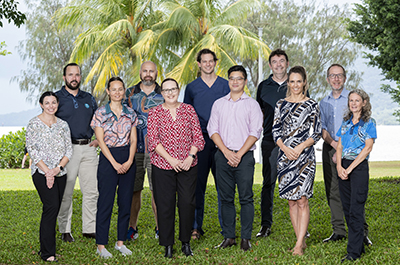MRFF grant for better detection of heart disease in First Nations Australians

An interdisciplinary team of researchers has received a $1.49 million Medical Research Future Fund grant to develop and implement a new way to improve the diagnosis and treatment of heart disease in First Nations Australians.
Chief investigator Professor Louise Cullen, from the QUT Australian Centre for Health Services Innovation, said the three-year project would change the existing care model to address both short and longer terms risk of coronary artery disease (CAD) in First Nations people.
“This project’s aim is better detection and management of CAD in First Nations people who present to emergency departments with symptoms of a possible heart attack such as chest pain and who possibly have undiagnosed heart disease,” Professor Cullen said.
“For First Nations Australians, heart disease occurs at younger ages, with a nine-fold higher rate of cardiac events in people aged under 45 years compared with non-Indigenous Australians.
“Our team will co-design and implement the Powerful Pictures (PP) model of care which will improve access to additional, sensitive testing to screen for underlying heart disease.
Professor Cullen said the findings aim to inform clinical guidelines about assessment practices of First Nations patients who will benefit from the earlier diagnosis of a potentially life-threatening disease.
“This strategy is aimed at early detection of those with coronary artery disease to avoid delays in starting preventive therapies, help initiate lifestyle changes and provide patients with a better understanding of their hearts through culturally safe information.
“An evaluation of the costs of the Powerful Pictures model of care for First Nations patients and for the broader Australian community will be conducted as part of the study.
“Our research team will build on well-established relationships with Far North Queensland and Aboriginal and Torres Strait Islander Community Controlled Health Organisations (ATSICCHOs) and peak bodies, clinicians, and primary health care providers to help co-design the study and deliver the study outcomes.”
The research team from QUT and the Australian Centre for Health Services Innovation, of Chief Investigators comprises: Professor Louise Cullen, Professor William Parsonage, Associate Professor Jaimi Greenslade, Dr Zephanie Tyack, Dr Susanna Cramb, Dr Victoria McCreanor, Laura Stephensen, who is also from the Royal Brisbane and Women’s Hospital and Professor Ray Mahoney, who is also from CSIRO and Flinders University.
Research partner Chief Investigators are: Professor Derek Chew (Monash Health), Dr Andrea McKivett (Flinders University); Dr Abdul Rahman Ihdayhid (Fiona Stanley Hospital); Professor Gemma Figtree (University of Sydney); Professor Graham Hillis (Royal Perth Hospital); Dr Gregory Starmer, (Cairns Hospital); Mr Andrew Goodman (CSIRO Australian e-Health Research Centre).
Associate Investigators are: Dr Nathan Brown (Royal Brisbane and Women’s Hospital); Dr Katrina Starmer, Dr Sean Nguyen, Virginia Campbell (Cairns Hospital); Jeremy Rigney, Tania Davis (Queensland Health).
Photo above: (From left) Laura Stephensen, Andrew Goodman, Dr Andrea McKivett, Jeremy Rigney, Professor Louise Cullen, Dr Gregory Starmer, Dr Sean Nguyen, Professor Ray Mahoney, Dr Katrina Starmer, Professor William Parsonage, Virginia Campbell.
Media contacts
Australian Centre for Health Services Innovation: Sian Conway Lamb, 07 3138 6087, sian.conwaylamb@qut.edu.au
QUT: Rod Chester, 07 3138 9449 or n.widdowson@qut.edu.au
QUT: After hours: 0407 585 901 or media@qut.edu.au






